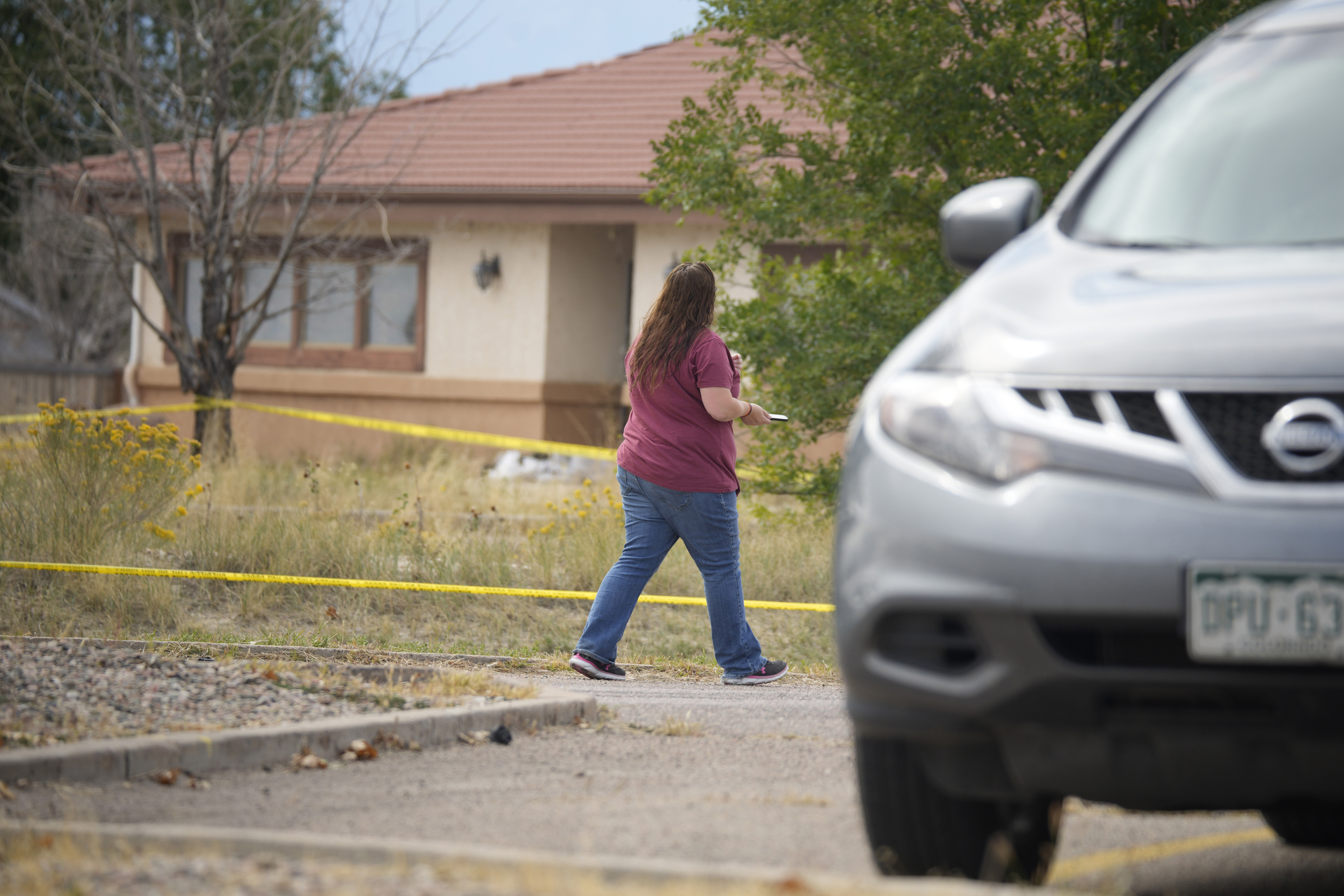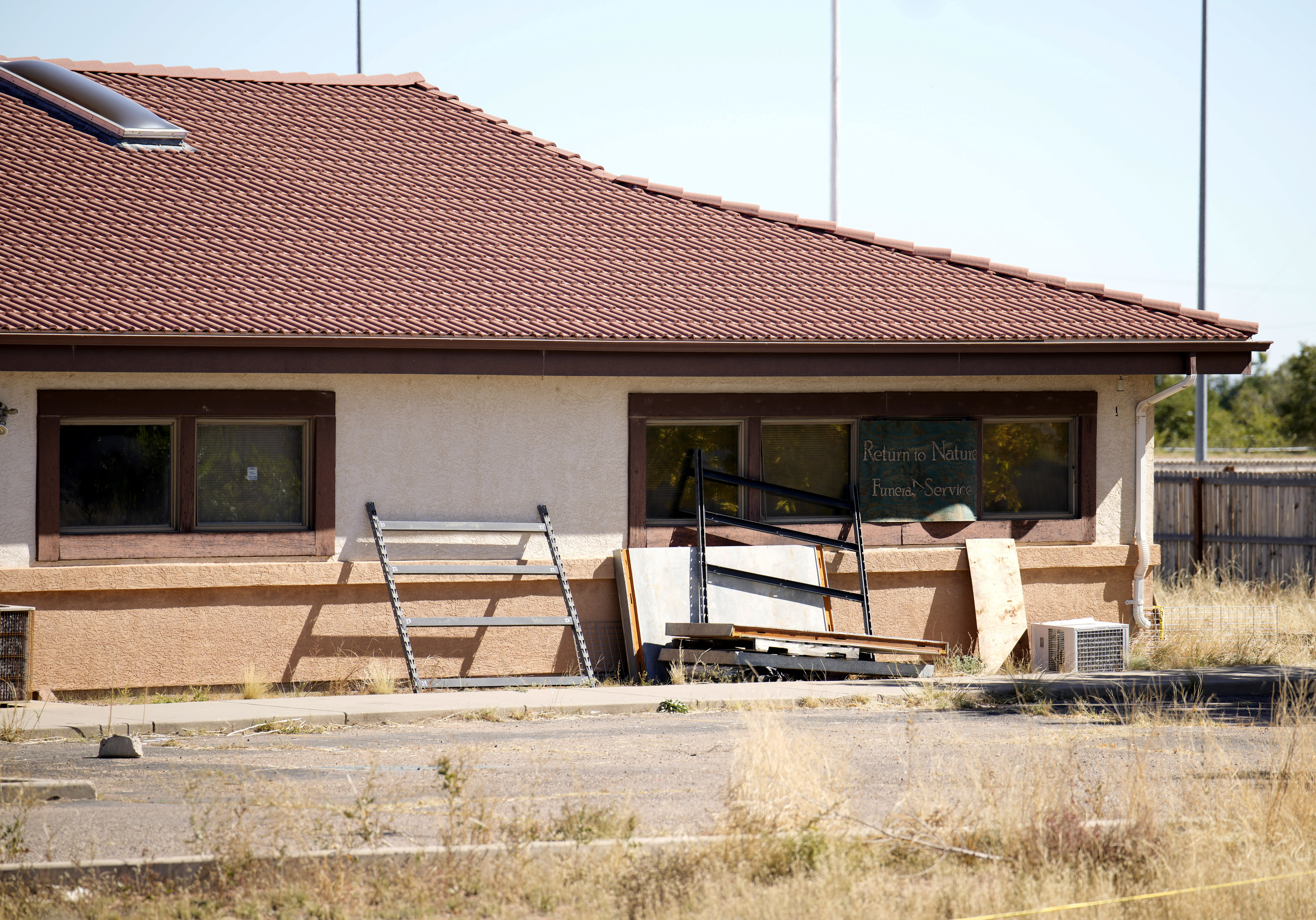
A former funeral home owner accused of keeping a woman's corpse in the back of a hearse for two years and hoarding the cremated remains of 35 people has been arrested, authorities said.
Thursday night's arrest of Miles Harford, 33, comes in connection with the latest in a series of offenses by Colorado funeral home owners, including the discovery of nearly 200 decomposing bodies in a bug-infested funeral home facility last year. The finds have underscored the laxness of state funeral home regulations and have brought pressure on lawmakers to try to strengthen the laws.
A grisly scene of urns stashed around the Harford property, from a crawl space to inside the hearse where the 63-year-old woman's body lay, was uncovered in early February during a court-ordered eviction at Harford's home, police said.
While searching the property, police opened the door of the hearse to a “foul odor,” seeing the outline of the human body seemingly strapped to the gurney and covered by blankets, according to the arrest affidavit.
We've got the news you need to know to start your day. Sign up for the First & 4Most morning newsletter — delivered to your inbox daily. Sign up here.
Harford owned Apollo Funeral & Cremation Services in the Denver suburb of Littleton, police said, and the hoarded cremains appear to be those of people who died from 2012 to 2021. The funeral home has been closed since September 2022.
A warrant lists potential charges of abuse of a corpse, forgery of the death certificate, and theft of the money paid for the woman’s cremation, though Denver District Attorney Beth McCann said previously that other charges are possible. Harford was released from custody Friday after briefly appearing in court by video.
Available court documents did not yet list a defense attorney who could comment on Harford’s behalf. No voicemail was set up at a telephone listing for Harford, and he has not responded to emails seeking comment.
Police interviewed Harford the day after the Feb. 6 discovery, the arrest affidavit shows. Denver Police Cmdr. Matt Clark previously said that Harford acknowledged to police that he owed money to several crematories in the area and that none would cremate the woman's body, so he decided to store it in the hearse. The deceased woman's family told investigators they were given what they believed were the woman’s ashes, which have been turned over to a medical examiner’s office.
When an arrest warrant was issued for Harford on Feb. 12, however, the suspect didn't turn himself in. By Thursday, police still couldn't find him and offered a $2,000 award for information leading to his arrest.
Authorities were able to “possibly establish” the identity of 18 individual cremains, according to the arrest affidavit. Police also discovered online reviews of the funeral home with a number of complaints. The families cited poor communication from the company in giving back the remains of their loved ones. One family said they received ashes in an urn labeled with the wrong name, the document shows.
Other Colorado funeral homes have allegedly sent fake ashes to grieving families.
Harford's arrest follows the discovery of 190 decaying bodies in a building run by the Return to Nature Funeral Home in Penrose, Colorado, about two hours south of Denver.
A married couple who owned Return to Nature are awaiting trial in Colorado Springs following their arrest last year on allegations they abused corpses and gave fake ashes to relatives of the deceased. The operators of another funeral home in the western Colorado city of Montrose received federal prison sentences last year for mail fraud after they were accused of selling body parts and distributing fake ashes.
More than two dozen additional criminal cases and complaints involving Colorado funeral homes since 2007 were detailed in a January report to lawmakers from state regulators. The cases included mishandled bodies, mislabeled remains, ashes never being returned to families and improper embalming of bodies.
During a Colorado House committee hearing Wednesday, the executive director of the state agency that oversees funeral homes, Patty Salazar, said that current laws and regulations have failed people in Colorado, and there is a general understanding that the state needs to do better. Other states run annual inspections of funeral homes and require those who operate them to pass a test or get a degree in mortuary science. No such rules exist in Colorado.
___
Bedayn is a corps member for the Associated Press/Report for America Statehouse News Initiative. Report for America is a nonprofit national service program that places journalists in local newsrooms to report on undercovered issues.



